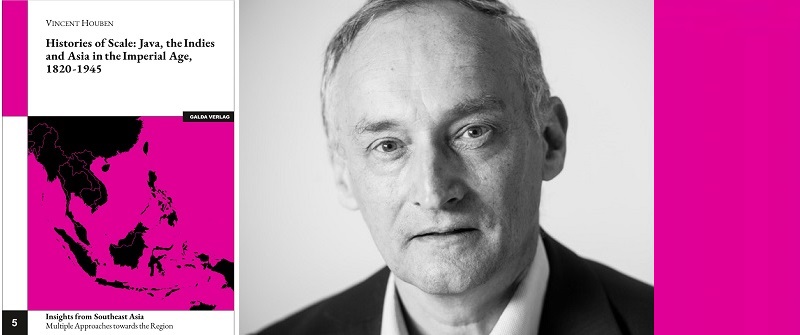
16 Dec Blog: Alter-writing Indonesia’s history of the imperial age
Since the upsurge of global history in the 1990s, the historiography of Indonesia has undergone substantial change. In the Netherlands and in today’s democratic Indonesia, efforts are underway to reinterpret both colonial and postcolonial history from a new, critical scholarly point of view. This can be seen as part of the long-term, partly painful process of mental decolonization.
I started contributing publications on Indonesia’s colonial history in 1986. Since leaving the Netherlands in 1997, my approach has shifted from one focusing on the internal dynamics of Dutch colonialism towards one that views it within the context of South East Asia and global imperialism. What I have retained, however, is a deep grounding in archival materials and historical documents – in Dutch and from the area, both in the Netherlands and in Indonesia. My aim has been to render the trajectories and features of a unique and fascinating contact history from the bottom up. In addition, I have attempted to use Indonesian history as a tool for developing new theoretical interventions. In 2017, I proposed ‘New Area Studies’ as an instrument for going beyond the limitations of classical Indonesian and other area studies.
I have now published a book entitled Histories of Scale: Java, the Indies and Asia in the Imperial Age, 1820-1945. It has the bold aim of presenting a new theory of area history. Set within six separate case studies on in-between themes driven by in-between actors, I argue that Indonesia’s history needs to be written as multiple histories of scale. What I mean by this is that, because of its archipelagic format and location in a ‘world region at the crossroads’, the local, intra-imperial, transimperial and global scale have always been interwoven – not hierarchically but in the flat, lateral sense. The nature of these linkages differed, however, and this can be best expressed through ‘topochrones’. A topochrone is a specific space-time configuration that condenses the precise nature of connections between several scales into a singular morphology. As a result, for the period between 1820 and 1945, I found four mid-range scalar concepts that drove Dutch imperialism: chain, circuit, grid and cascade. Taken together these mid-range concepts capture the historical dynamics of the Dutch East Indies empire, as an interconnected, pulsating and transforming system.
One chapter is on the Timor border and has attracted scholarly attention in East Timor itself. There are other archival findings in this book that may cause some controversy and will hopefully lead to new debates. Readers are left to make up their own minds about this attempt to ‘alter-write’ Dutch-Indonesian history.
Vincent Houben is professor of Southeast Asian History and Society, Institute of Asian and African Studies at Humboldt-Universität zu Berlin. He studied history and Indonesian languages at Leiden University. He obtained his Ph.D. in 1987 and became a lecturer of Indonesian history at the same university. In 1997 he moved to Germany. His areas of research are modern Southeast Asian history (nineteenth and twentieth centuries), colonial history, labour history, memory studies and area studies theory. He published several books and over ninety scholarly articles.
References
- Vincent Houben, ‘New Area Studies, Translation and Mid-Range Concepts’, in: Katja Mielke and Anna-Katharina Hornidge (eds.), Area Studies at the Crossroads. Knowledge Production after the Mobility Turn (Basingstoke: Palgrave MacMillan 2017) 195-211
- Vincent Houben, Histories of Scale: Java, the Indies and Asia in the Imperial Age, 1820-1945. Glienicke: Galda Verlag 2021, 302 pp.




No Comments